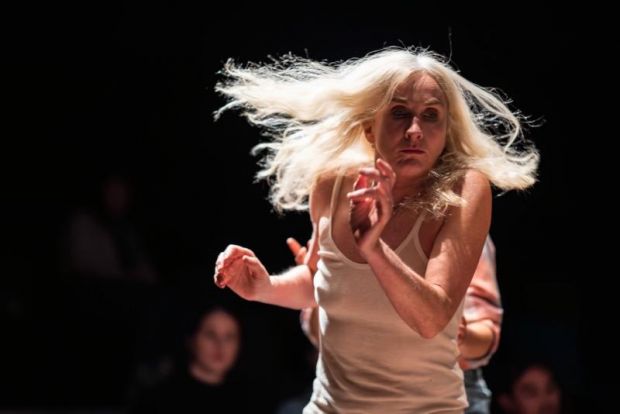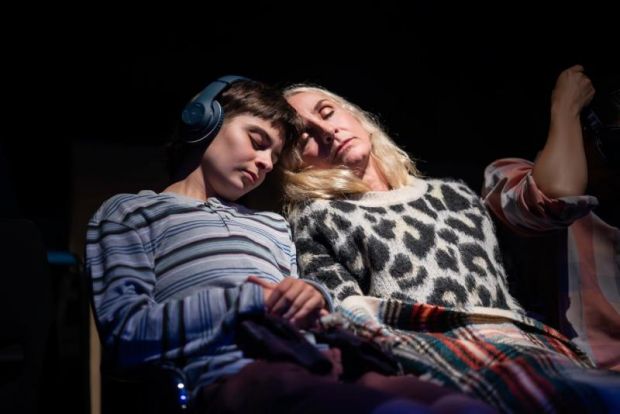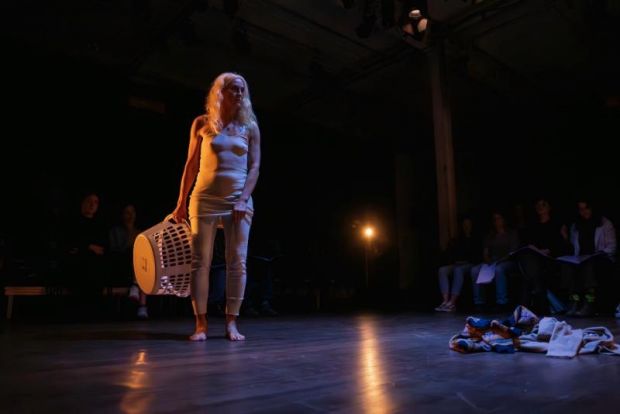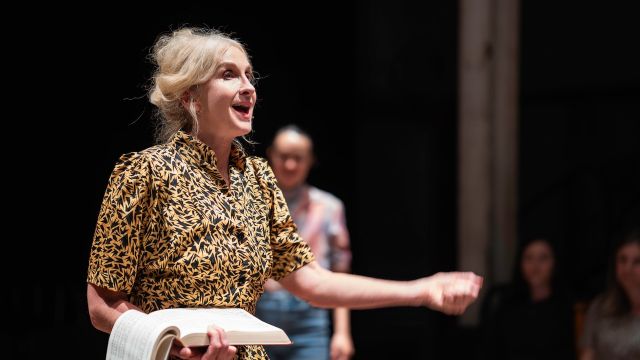The Hall
When you have Natasha Herbert – an actor of such intense presence, vitality and beauty - as ‘Tup’, a grandmother with Frontotemporal dementia, it breaks your heart. The sense of waste and loss is all the keener. The Hall doesn’t soften her condition. She scarcely recognises her daughter Alison (Brooke Lee), now her principal longsuffering but loving carer, or her non-binary (they/them) teenage grandchild, Billie (Emmanuelle Mattana).
Tup drifts on stage in underwear and an incontinence nappy. She is vague, blank, as if somewhere else, then suddenly febrile, irascible, demanding – then softening, sentimental, a dependant child. It’s a compelling performance. In only one brief scene do we see Tup as she was – brave, sassy, wide-cracking, glamorous, and a singer – because Tup loved to sing. In any choir, she was the loudest and the best.

Music, as we now know, can be the last vestige, the last connection to the past of the dementia sufferer. Music is what Tup remembers. Music is still how she can be reached. In The Hall there are stacks of a hymn book, ‘The Sacred Harp’, stashed away in the house. But in this play, there are original songs by playwrights Ro Bright and Pat Irwin, sung by a choir seated around the stage, interpolated into the narrative, sometimes enhancing, sometimes almost bursting in. The Hall is both intensely naturalistic and dramatically, magically heightened at the same time. The music is always there for Tup and so it’s there at one remove too for Alison and Billie – and the combination, the weaving together of text and Kitan Petkovski’s direction never falters. (Petkovski has had choirs on four sides of his stage before, in the haunting The Gospel According to Jesus, Queen of Heaven.)

The simple plot is animated by the discovery of scraps of love letters hidden among the detritus of the past. Alison and Billie can’t recognise the handwriting, but the letters show that once Tup loved passionately and was loved in return. Crazy and possibly futile as it may be, the letters give Alison and a more reluctant Billie a project. Maybe if they can solve the puzzle, it will help Tup… They pursue their quest with resilience, with desperation – and a great deal of humour. The sheer goodness of Alison and Billie is as touching as Tup’s isolation. Alison is dogged and inventive while Emmanuelle Mattana’s teenager, posting everything to TikTok, is still a teenager – another utterly engaging performance.

The Hall runs seventy-five minutes – which seems just right. It is tragic and matter-of-fact funny. The music lifts the sadness to another dimension. Petkovski’s direction – assisted by Belinda McClory – is precise, finding the rhythms of this layered play and creating something intuitive, touching and beautiful.
Michael Brindley
Photographer: James Reiser
Subscribe to our E-Newsletter, buy our latest print edition or find a Performing Arts book at Book Nook.

